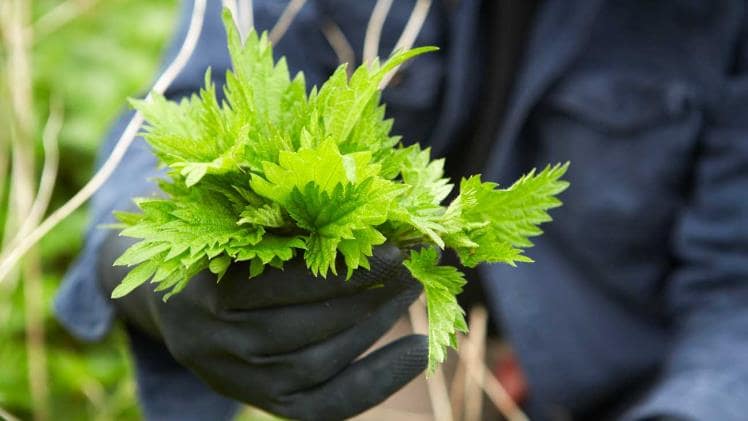We’ve written about Stinging nettle’s anti-inflammatory and diuretic properties and how it interacts with medications including NSAIDs. Now, we’ll explore the effects of stinging nettle on blood sugar levels. Here’s a quick look at Stinging nettle’s Medicinal Effects. To help you decide if this plant is right for you, we’ve compiled some helpful information about the Stinging nettle.
Stinging nettle’s anti-inflammatory properties
Traditional uses of stinging nettle include treating wounds and eczema, but its anti-inflammatory properties extend well beyond its use as a suppository for arthritis and rheumatoid arthritis. It also has strong antimicrobial and anti-inflammatory properties, making it a valuable herbal medicine. To benefit from its anti-inflammatory properties, stinging nettle needs to be thoroughly processed before use. Infused in olive oil or recipes, nettle can be used directly on the skin or in tinctures.
Diuretics increase the flow of urine, removing excess water and sodium. In animal studies, nettle leaf extracts increased urine flow and acted as diuretics. The plant’s anti-inflammatory properties improved wound healing in rats, which accelerated healing and reduced scarring more effectively than conventional methods. In a human study, stinging nettle leaf extracts combined with arnica extracts enhanced wound healing.
Its diuretic properties
Stinging Nettle Root has been used by mankind for many centuries. Greek physicians documented its diuretic and laxative effects and used it to treat asthma, pleurisy, and spleen-related conditions. Pliny the Elder, a Roman naturalist, also recorded its hemostatic properties. It has also been used to treat blood pressure and cholesterol levels. In addition to its diuretic properties, Stinging Nettle Root has been used in alternative medicine for its many beneficial health benefits.
While Stinging Nettle Root’s diuresis properties may help with fluid retention, it can interfere with other supplements or herbs. Depending on the dose, you may experience adverse reactions. It may interfere with blood sugar control and raise the risk of hypoglycemia. Diabetics should consult with a doctor before using nettle, as taking it could affect their medications. While most people tolerate stinging nettle well, fresh or unprocessed nettle can sting.
Its interaction with NSAIDs
Many arthritis sufferers use NSAIDs for joint pain, but stinging nettle may reduce the side effects of these medications. Although it has been used for centuries, the effectiveness of stinging nettle has not been proven. In addition, research on this herb’s interactions with NSAIDs has been mixed. Although nettle is safe for use, it can have harmful effects if used for long periods.
One possible interaction between stinging nettle and NSAIDs involves its effect on blood thinning. This herb contains large amounts of vitamin K, which helps blood clot. It can also lower blood pressure and strengthen the effects of some drugs that treat high blood pressure. However, be aware that nettle is also a diuretic, so use it with caution. The same is true for water pills, as both can lead to dehydration. Stinging nettle and lithium may decrease the removal of these drugs.
Its effect on blood sugar
Traditional medicine has long used medicinal plants to manage blood sugar levels in people with diabetes. However, only a few of them have been thoroughly studied. As a result, many people self-medicate with herbal supplements. A study from 2011 investigated the effects of Stinging Nettle on insulin sensitivity and inflammatory markers in people with type 2 diabetes. The results were encouraging, with patients showing a significant decrease in the levels of inflammatory markers.
The benefits of stinging nettle are well-known in traditional medicine. These herbs have anti-inflammatory, antidiabetic, and hypoglycemic properties. In addition, they may help to maintain blood sugar levels in patients with type 2 diabetes. However, they are not a cure-all for diabetes. The best way to treat this condition is to control blood sugar levels.
Its effect on gout
The benefits of stinging nettle for gout sufferers are many, and research suggests that it can be used to reduce pain and inflammation. stinging nettle root for hair loss nettle contains various antimicrobial, antioxidant, and pain-relieving properties. It is also a good natural diuretic and has been used for centuries to treat pain and disease. It is found in many regions around the world, but it was first used as a herbal remedy in Ancient Greece. The nettle stems are covered with fine hairs, and they contain substances that are believed to be effective at relieving pain. The spines of stinging nettle are also thought to reduce inflammatory chemicals in the body. Stinging nettle has been proven to reduce pain, reduce inflammation, and interfere with pain signals.
There are some pitfalls associated with using stinging nettle in gout treatment, however. In addition to the risks associated with using the herb, it can cause more harm than good. Although it is safe to use nettle in moderation, stinging nettle extracts do have strong anti-inflammatory properties. It is also better tolerated than traditional tinctures. If you do have allergies, you should consult your doctor before taking stinging nettle.
Its effect on hay fever
The effects of Stinging Nettle root on hay fever are still unclear. It has been used for centuries by traditional healers and is still a popular choice for natural treatments. Its antihistamine and anti-inflammatory properties have been widely recognized, making it a valuable addition to any rheumatoid arthritis treatment regimen. However, researchers are still studying the plant’s benefits and its rheumatism relief capabilities.
Conclusion
The root of Stinging Nettle is a traditional folk remedy for arthritis and hay fever and appears to be well tolerated by patients. The use of Stinging Nettle for hay fever symptoms is not without risks. However, it should be noted that allergic skin reactions are a possible side effect. The effectiveness of Stinging Nettle root for hay fever relieving symptoms is based on anecdotal evidence and one small placebo-controlled study. Both groups reported similar side effects, but in the placebo group, 32% experienced milder hay fever symptoms.

